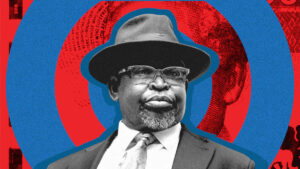Get ready for Budget 3.0

The decision by National Treasury to remove the VAT hike in South Africa means that a third version of the National Budget should be incoming.
Earlier this week, National Treasury retracted the controversial VAT hike a mere week before its implementation.
The tax increase would have seen VAT rise to 15.5% on 1 May 2025, with another half-percentage point increase in 2026.
The intention is for this now not to be the case—although the legal practicality of this is still under question.
The move to hike VAT was met with widespread criticism across the board, with the DA, the second-largest party in the Government of National Unity (GNU), not only not voting against the Budget, but also taking the matter to court.
Despite the backlash and apparent opposition to the VAT hike, the budget’s fiscal framework was still pushed through the National Assembly with the VAT hike included.
This was possible thanks to the ANC receiving support from non-GNU members, Action SA and BOSA.
The support was conditional, based on the National Treasury re-evaluating the Budget and looking for other ways to raise revenue.
However, the practical outcome has led to the effective withdrawal of the entire 2025 Budget, with National Treasury introducing a new Rates Bill (without the VAT hike) and withdrawing the Division of Revenu and Appropriations Bills to reflect the changes.
The Bureau for Economic Research’s (BER’s) Roy Havemann said that withdrawing these Bills is equivalent to withdrawing the Budget, meaning that Parliament must give a date to table a new Budget.
Fortunately for South Africa, tabling a new Budget does not pose any risks to the country outside of reputational risks.
The Public Finance Management Act states that spending can continue at the same rate as the previous year while the processes play out.
Moreover, interest payments on debt are ringfenced outside of the Budget as per the Constitution. These interest charges are part of the National Revenue Fund and paid indefinitely.
Although the exact legal status of the fiscal framework is unclear, a new framework seems likely due to massive changes in the economic environment and the revenue implications.
What will be in the new Budget
In withdrawing the VAT hike, Treasury noted that the decision not to increase VAT means that the measures to cushion lower-income households from the increase will be withdrawn.
Any additional revenue collected by SARS will also need to offset the unavoidable expenditure adjustments.
“We read that to mean that the above inflation increase in social grants will be reduced, potentially to inflation only, and now at the much lower expected inflation rate,” said Havemann.
Nevertheless, the group expects the lack of drag relief on personal income tax to remain, and no changes to personal income tax brackets and rebates will be made in Budget 3.0.
Havemann said that whether the fiscal position will be better or worse than Budget 2.0 depends on how much the Treasury can cut.
Many of the spending increases were tagged as provisional, allowing for a delay in these expenditures.
The economic environment has also changed, with both positives and negatives for Treasury. Lower inflation means that spending growth can be revised downwards in nominal terms.
That said, lower growth and lower inflation mean that revenue will also need to be revised.
Budget 2.0 expected GDP growth of 1.9% for 2025. This is far more optimistic than the BER’s and IMF’s expectations of 1.5% and 1.0%, respectively.
Despite Budget 2.0 being withdrawn from parliament, there is also now more uncertainty over the GNU, especially the DA’s continued participation in the government.
The DA and Freedom Front Plus openly and directly worked against the GNU and the ANC-led budget, causing massive ructions in the coalition.
“To be frank, whether the GNU holds is extremely hard to call, and we need to be mindful that even if it holds for now, it will continue to be tested in the coming years,” said Havemann.
“In an exit scenario, a weak DA within the GNU could be worse for policymaking than a stronger DA in the opposition benches. “
Without the DA, the GNU would have exactly 50% of the seats in parliament. Havemann noted that the EFF or MK joining would be more negative than if ActionSA or BOSA joined the GNU.
Even with ActionSA and BOSA included, the new GNU would only make up a tiny majority—barely enough to pass legislation.
While negotiations are expected to play out in the coming days, it is worth noting that the DA and FF+ were excluded from the GNU’s media briefing on the VAT hike reversal, while Action SA and BOSA were included.





















